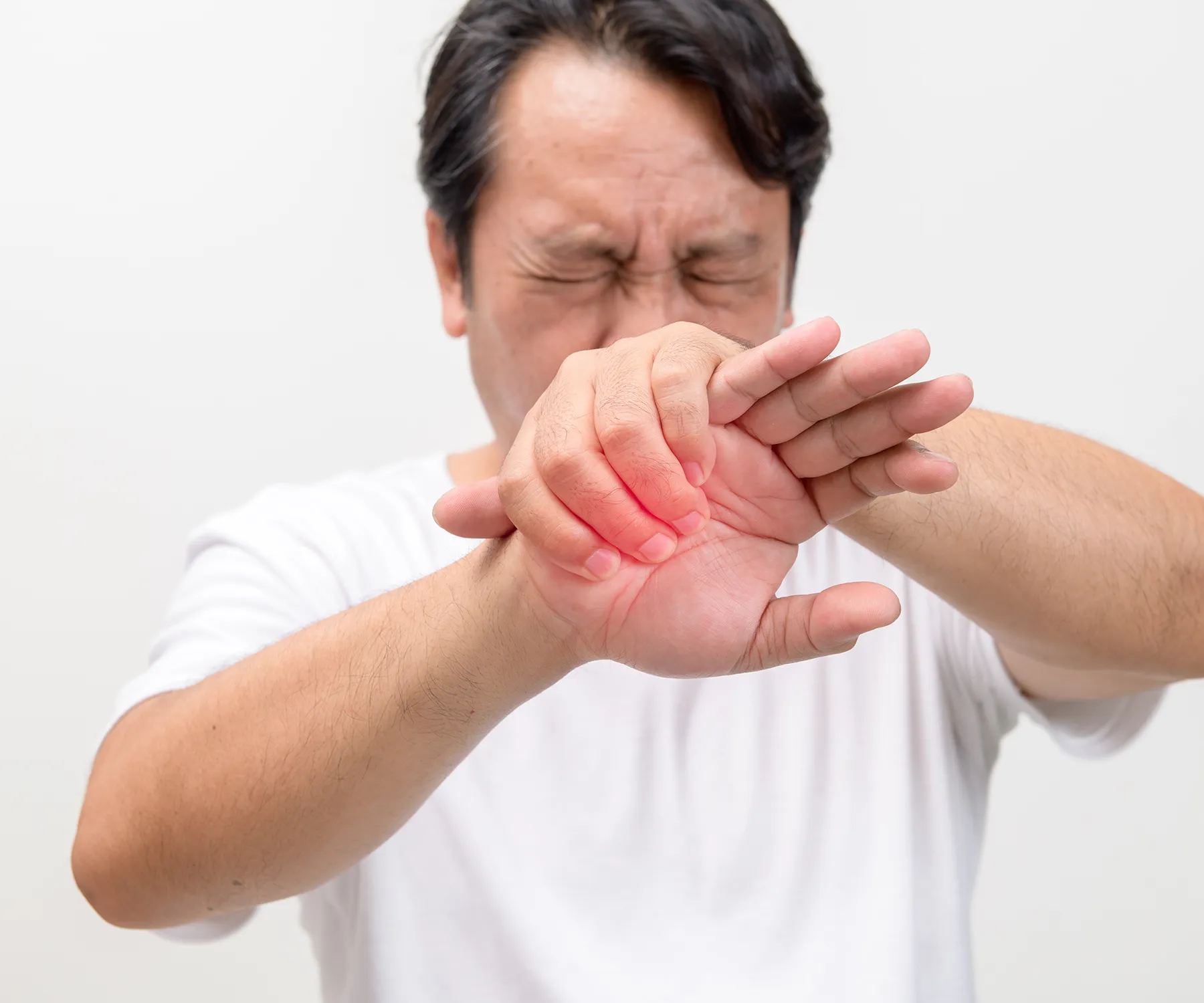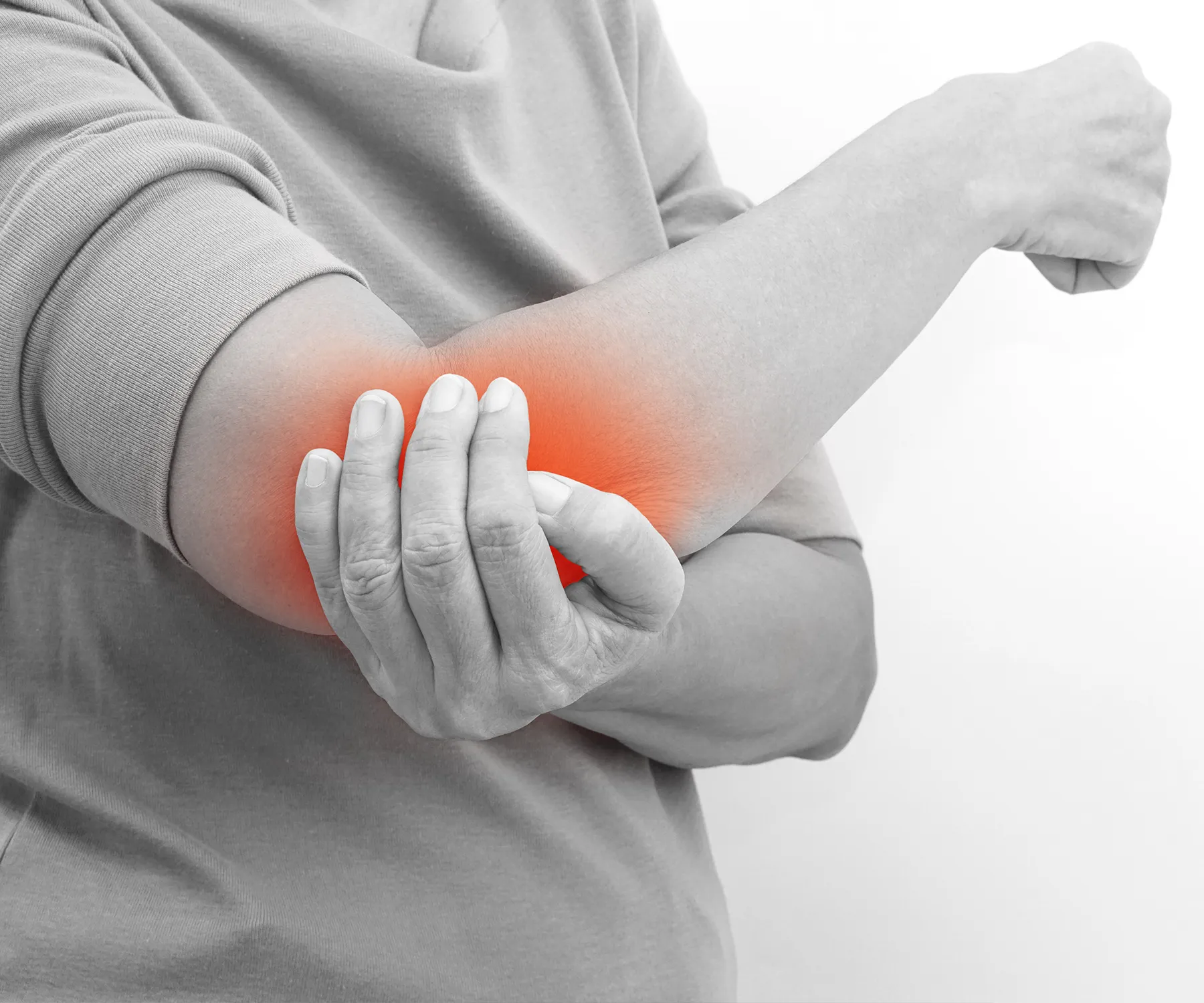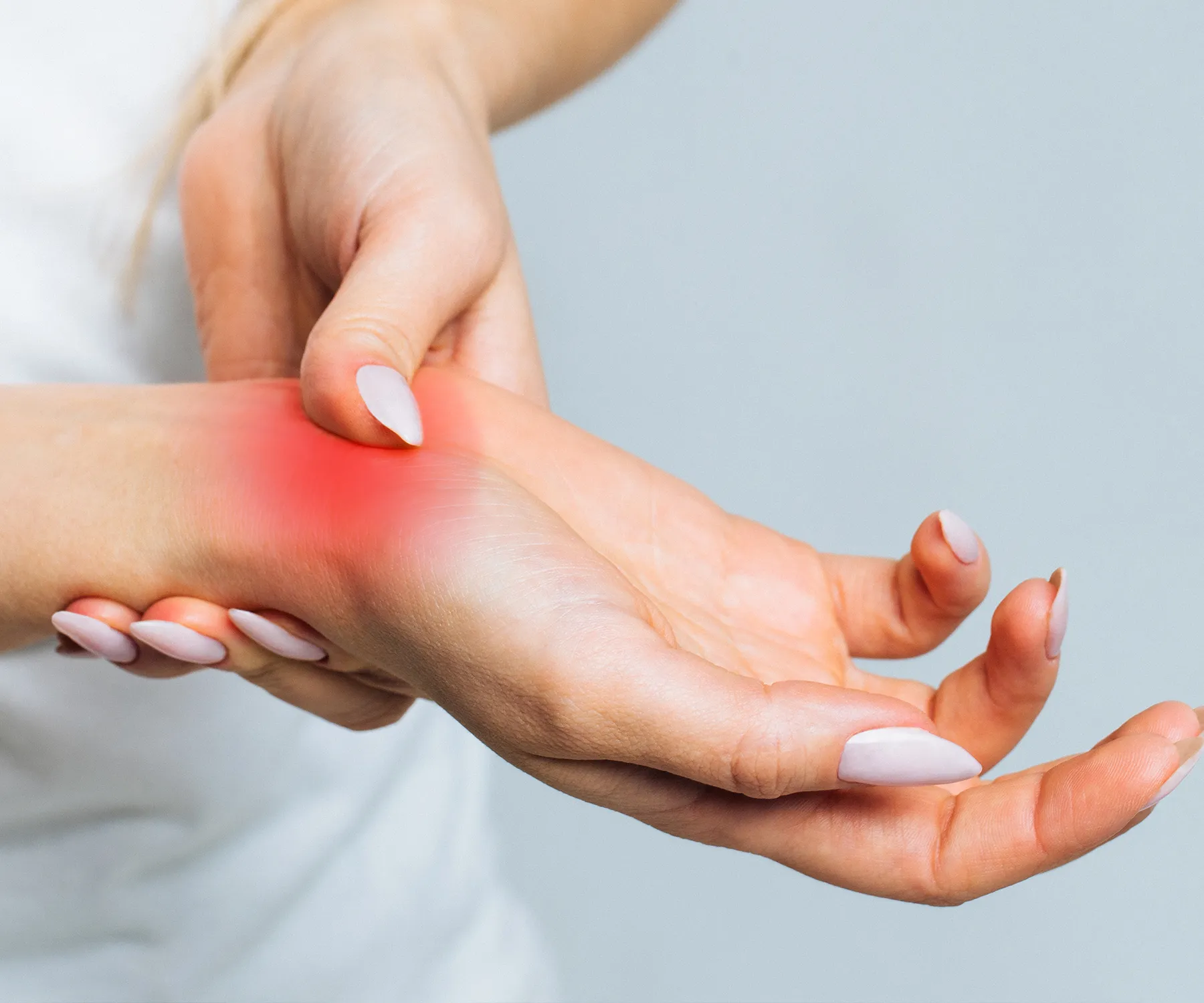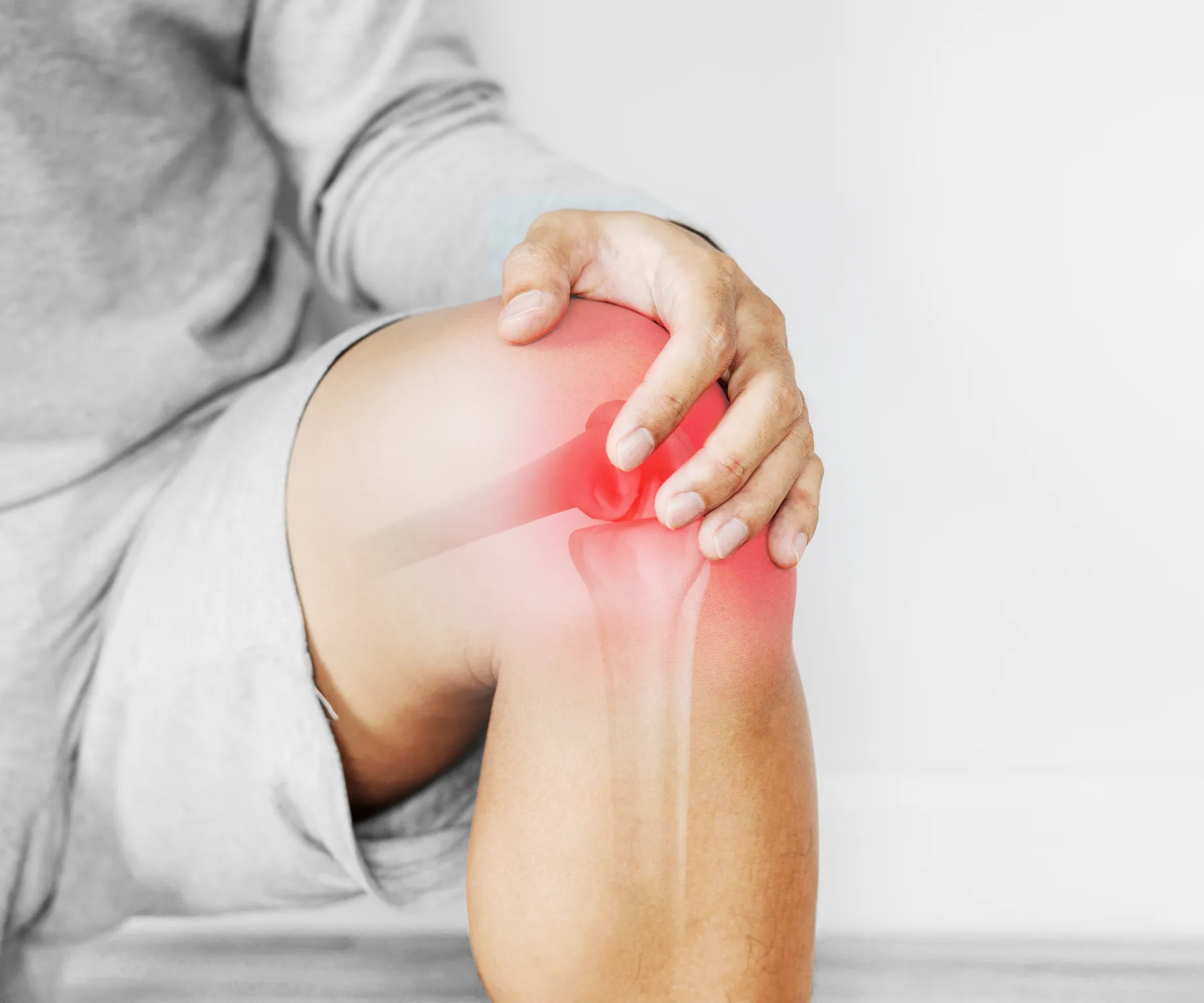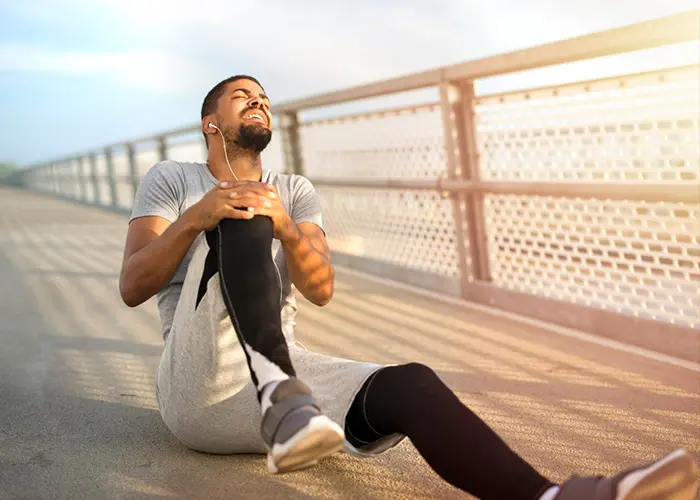
Is Sports Injury Keeping You From Running Your Next Marathon?
As per a 2022 TOI survey, football and cricket players report a 500% increase in knee and ankle injuries, while ACL injuries surge by 400%.
A sports injury is a physical ailment that occurs as a result of participating in sports or physical activities. These injuries can range from minor sprains and strains to more severe conditions, such as fractures or ligament tears. Sports injuries are not limited to professional athletes; they can happen to people of all ages and skill levels who engage in physical activities.
If your recent sports activity gave you sprain, strain, fracture or dislocation, access physiotherapy for sports injury to get back to the game you love!
Have you suffered any of these sports injuries?
Sprains
Ligament injuries due to stretching or tearing of the connective tissue that holds bones together
Strains
Muscle or tendon injuries resulting from overstretching or excessive force.
Shin Splints
Pain and inflammation along the shinbone due to repetitive stress on the lower leg
Stress Fractures
Tiny cracks or fractures in bones due to repetitive impact and overloading
Dislocation
Joint injuries where the bones are forced out of their normal positions.
Tendinitis
Inflammation of the tendons, commonly seen in overused or repetitive motion sports.
Various Injuries
Tendon, Knee, Ankle, Shoulder, Neck, Hamstring, and Back Injuries by relieving pain and restoring mobility
Overuse Injuries
Repetitive stress injuries caused by excessive training without adequate rest
What causes sports injuries?
Numerous things, such as overuse, improper technique, inadequate stretching and warm-up, trauma, muscular imbalances, and inadequate conditioning, can lead to sports injuries. Injury-causing variables might also include the environment and bad sports equipment. The risk of injury is increased by exhaustion and overtraining, and young athletes may be more vulnerable to specific injuries because of their physical development. Sports injuries can be prevented by taking preventative steps including good training, perfecting technique, getting enough rest, and utilizing the right equipment.
Physiotherapy for sports injury helps you get back to sports by

FAQs related to Sports Injury
What exactly is a sports injury?
Any pain or damage suffered when engaging in physical exercise or sports-related activities is referred to as a sports injury. From mild sprains and strains to more serious fractures or tears, these injuries can occur.
What are the most common types of sports injuries?
Sprains, strains, fractures, dislocations, tendinitis, and ligament tears (including ACL tears) are the most typical sports injuries.
What are acute and chronic sports injuries?
A sprained ankle, for example, is an example of an acute sports injury that occurs suddenly. On the other hand, persistent stress on a specific body region can cause chronic sports injuries, such as tendonitis from overuse.
Who is most prone to sports injuries?
Sports injuries are more common among athletes, especially those who take part in high-impact or contact sports. However, everybody who exercises runs the risk of suffering a sports-related injury.
Do sports injuries often require surgical treatment?
Not all sports-related injuries require surgery. With conservative treatments including rest, ice, compression, and physical therapy, many injuries can be healed. However, for the best chance of recovery, some serious or complicated injuries may require surgical intervention.
How should I treat a common sports injury immediately after it happens?
For emergency care, the RICE technique is typically advised: Rest the injured area, apply Ice to reduce swelling, use Compression to support the injury, and Elevate the damaged limb to reduce swelling.
Can I walk on a sprained knee?
A sprained knee should not be put to use by walking on it right away. In order to promote good healing, it is best to refrain from putting weight on the injured knee. If you need to, use crutches, and go to the doctor to get properly evaluated.
Does a torn Achilles tendon hurt?
Yes, a ruptured Achilles tendon frequently causes severe pain, especially where the damage occurs. Other signs could include stiffness, edema, and trouble moving or pointing the toes.
Should I stop stretching after a sports injury?
Stretching the affected area before it is fully healed is crucial if you have suffered a sports injury. Instead, concentrate on relaxation and mild movement. For particular advice on how to resume stretching exercises, speak with a healthcare practitioner.
What is a shin splint? How is it different from a stress fracture?
An overuse injury known as a shin splint causes pain along the shinbone (tibia). It frequently affects runners and is frequently brought on by repetitive stress. Small cracks or breaks in a bone brought on by continuous tension are known as stress fractures. Despite the fact that both can result in shin pain, their underlying causes are distinct and their recommended treatments differ.
How can I tell if my ACL has been torn?
Symptoms of an anterior cruciate ligament tear include a popping feeling at the site of the injury, excruciating knee pain, swelling, instability, and trouble supporting the weight of the injured limb. For a precise diagnosis, a thorough physical examination and imaging (MRI) are required.
How should I handle tendinitis?
Rest, ice, and anti-inflammatory drugs are used to treat tendinitis in order to lessen discomfort and inflammation. To speed up recovery and stop new problems, physical therapy, stretching, and strengthening exercises may also be advised.
What symptoms indicate a concussion?
Headache, vertigo, confusion, memory issues, sensitivity to light or noise, and mood swings are all indications of a concussion. It’s critical to get medical attention right away if you believe you may have suffered a concussion.
What are the most common shoulder injuries affecting athletes in throwing sports?
Injuries to the rotator cuff and labral tears are frequent among athletes who compete in throwing sports like baseball or javelin. These injuries, which may need expert care, can be brought on by frequent overhead motions.
When should I see a doctor for my sports injury?
If you suffer from excruciating pain, major swelling, difficulty moving or bearing weight on the damaged area, or if the condition does not get better with simple home remedies, you should consult a doctor about your sports injury.
How can I prevent getting injured in the future?
Warming up before physical activity, using proper technique, wearing the right protective gear, paying attention to your body, incorporating rest days into your training schedule, and engaging in cross-training can all help prevent sports injuries. Additionally, keeping a healthy level of flexibility and overall physical fitness might aid in lowering the chance of injury.

